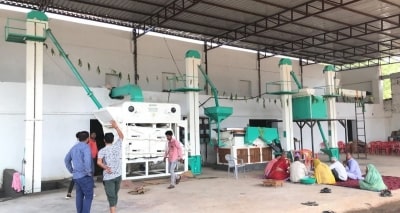New Delhi — India’s food processing sector is rapidly evolving towards a sustainable, tech-driven future, paving the way for the country to emerge as a global leader, according to a report released on Monday.
The joint knowledge report by ASSOCHAM and PwC, unveiled at the Food Tech conference organised by ASSOCHAM, highlights how cutting-edge Industry 4.0 technologies — including Artificial Intelligence (AI), Internet of Things (IoT), blockchain, robotics, and automation — are fundamentally transforming food processing, storage, and transportation.
These advancements are significantly enhancing operational efficiency, food safety, quality control, and supply chain transparency.
With the global food robotics market expected to reach $6.08 billion by 2032, the report emphasises India’s vast potential to leverage these technologies, especially in tackling challenges like post-harvest losses, which currently cost the country approximately ₹1.53 trillion every year.
“India’s transformation into a developed, self-reliant economy — Viksit Bharat — is closely tied to the advancement of its food processing sector,” said Manish Singhal, Secretary General of ASSOCHAM.
He added that strengthening the food processing ecosystem is essential, given its role as a critical link between agriculture and the country’s nutritional needs, and as a major contributor to economic growth.
The report also sheds light on existing challenges within the sector, including limited supply chain traceability, inadequate processing infrastructure, environmental concerns, and a shortage of skilled manpower.
Additionally, food wastage and foodborne illnesses continue to inflict significant economic losses, amounting to $936 billion and $110 billion globally each year.
To address these issues, the report calls for stricter safety protocols and greater use of digital technologies to enhance food security and reduce wastage.
It also highlights key government initiatives, such as the Pradhan Mantri Kisan Sampada Yojana (PMKSY) and Pradhan Mantri Formalisation of Micro Food Processing Enterprises (PMFME), both aimed at reducing post-harvest losses, strengthening infrastructure, and formalising the sector.
“Discussions around emerging food processing technologies are vital to encourage large-scale adoption. India’s food processing sector holds immense promise, especially with growing global interest and rising exports,” said Shashi Kant Singh, Partner – Agriculture and Food Sector, PwC India.
The report also noted that changing consumer preferences are reshaping the industry, with increasing demand for sustainable packaging, plant-based proteins, and clean-label products — reflecting greater awareness around health and environmental sustainability.
To unlock the sector’s full potential, the report advocates for a collaborative approach involving policymakers, industry leaders, academic institutions, and startups, backed by modern infrastructure and supportive policies.
With inputs from IANS

